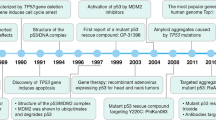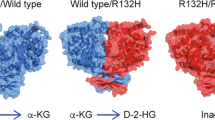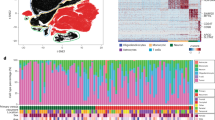Abstract
Malignant gliomas extensively infiltrate the surrounding normal brain, and their diffuse invasion is one of the most important barriers to successful therapy. Recent studies indicate that the progression of gliomas from low-grade to high-grade may depend on the acquisition of a new phenotype and the subsequent addition of genetic defects. One of the most frequent abnormalities in the progression of gliomas is the inactivation of tumor-suppressor gene p16, suggesting that loss of p16 is associated with acquisition of malignant characteristics. Consistent with this hypothesis, our previous studies showed that restoring wild-type p16 activity into p16-null malignant glioma cells modified their phenotype. In order to understand whether the biological consequences of p16 inactivation in high-grade gliomas included facilitating invasiveness, we used a recombinant replication-deficient adenovirus carrying the cDNA of the p16/CDKN2 gene to infect and express high levels of p16 protein in p16-null SNB19 glioma cells. Invasion of SNB19 glioma cells was tested into two models: invasion of glioma cells through Matrigel-coated transwell inserts and invasion of tumor-cell spheroids into fetal rat-brain aggregates in a co-culture system. Matrigel invasion assays showed that the SNB19 cells expressing exogenous p16 exhibited significantly reduced invasion. Similarly, invasion of p16-treated SNB19 cells into fetal rat-brain aggregates was reduced during a 72 h time period compared to invasion of the adenovirus-control and mock-infected cells. Expression of matrix metalloproteinase-2 (MMP-2), an enzyme involved in tumor-cell invasion, in SNB19 cells expressing p16 was significantly reduced compared to that of parental SNB19 and vector-infected cells. Our results show that restoring wild-type p16 activity into p16-null SNB19 glioma cells significantly inhibits tumor-cell invasion, thus suggesting a novel function of the p16 gene.
This is a preview of subscription content, access via your institution
Access options
Subscribe to this journal
Receive 50 print issues and online access
$259.00 per year
only $5.18 per issue
Buy this article
- Purchase on Springer Link
- Instant access to full article PDF
Prices may be subject to local taxes which are calculated during checkout
Similar content being viewed by others
Author information
Authors and Affiliations
Rights and permissions
About this article
Cite this article
Chintala, S., Fueyo, J., Gomez-Manzano, C. et al. Adenovirus-mediated p16/CDKN2 gene transfer suppresses glioma invasion in vitro. Oncogene 15, 2049–2057 (1997). https://doi.org/10.1038/sj.onc.1201382
Received:
Revised:
Accepted:
Issue Date:
DOI: https://doi.org/10.1038/sj.onc.1201382
Keywords
This article is cited by
-
Evaluation of the use of therapeutic peptides for cancer treatment
Journal of Biomedical Science (2017)
-
The protective effect of p16INK4a in oral cavity carcinomas: p16Ink4A dampens tumor invasion—integrated analysis of expression and kinomics pathways
Modern Pathology (2015)
-
p16INK4A Represses the paracrine tumor-promoting effects of breast stromal fibroblasts
Oncogene (2013)
-
miRNA-mediated tumor specific delivery of TRAIL reduced glioma growth
Journal of Neuro-Oncology (2013)
-
p16Ink4a overexpression in cancer: a tumor suppressor gene associated with senescence and high-grade tumors
Oncogene (2011)



